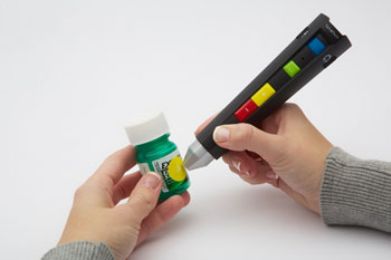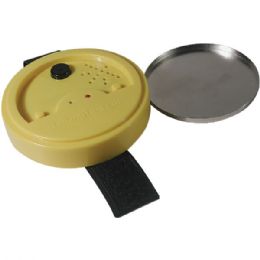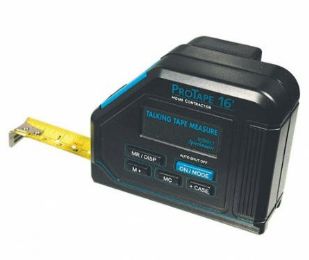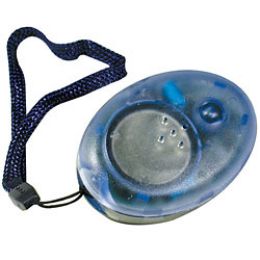
Everyday talking products are specially designed aids to provide sounds or auditory messages for guidance and assistance for a host of daily practical applications to assist those with visual impairment, dementia or Alzheimer's to live a safer and more independent lifestyle.




What are Talking Products?
Defined as a device with the ability to provide auditory messages and/or sounds, talking products help people with visual disabilities or blindness to live more safely and independently. They proffer a host of practical applications not only for sight-challenged users, but for those with Alzheimer’s or dementia as well.
While talking products are available in a wide range of formats, the basic idea with all of the designs is to provide audible support for things that are usually observable with the eyes. From knowing what time and day it is, to managing and remembering medications, to finding your way around outside or in unfamiliar territory, everyday talking products have got all of your needs covered.
Who Benefits from Talking Products?
Assistive talking products are often utilized by people who are blind or have some level of visual impairment. These innovative devices can be quite a boon for low- or no-vision users as they speak out information the sighted world takes for granted. Confidence is restored as users of these devices can once again be safe and live more independently. While they may have had to depend on others to help with a lot of daily living activities, talking products can now provide this assistance, helping visually challenged users to engage more directly in daily life.
Talking products can also be beneficial for the elderly, or for those with dementia or Alzheimer’s. They can be used for emergency contact support and as audible reminders for a wide range of information such as when to take medication, when to eat, and date and time prompts.
How do Talking Products Work?
Offering a rich diversity of choices, everyday talking products are able to accommodate every special need when it comes to auditory guidance. Many talking devices record and play back messages for various purposes, while others offer assistance via sound in other formats. Here are just a few of the many innovative talking options to explore:
Talking Products for Outdoors and Recreation
To keep you from getting lost, a handheld, talking GPS is the perfect solution. Identifying and announcing street, intersection and landmark names, a talking GPS can also let you know your own location immediately. Talking compasses additionally help point users in the right direction. Consequently, as you use your talking compass or GPS to familiarize yourself with your surroundings, you can also bring along your talking pedometer to help you keep track of your walking speed and total distance traveled.
Talking Products for the Grocery and Kitchen
Not only do they help low vision or blind users to correctly identify a vast range of items at the supermarket, but talking bar code scanners can likewise distinguish millions of other items that conjointly have bar codes. Talking food cans help users in the kitchen with their ability to record short messages that can be attached to the top of any can and played back to identify the contents. Other similar talking devices can also be attached to other foods or household products for proper identification.
Talking Products for Health and Medical
For low vision or blind diabetics, talking blood glucose monitors (glucometers) speak out auditory cues and results to help keep track of blood sugar testing. Talking blood pressure monitors help users to track their readings, generally storing audible results from several tests. One of the most popular talking products are medication reminders that can help users to remember what pills to take, how often to take them, when to take them and what they are prescribed for.
Talking Products for Leisure
Often also serving as an augmentative and alternative communication (AAC) device, talking photo albums allow personal recordings for each photo, drawing or icon. Talking dictionaries speak out selected words and definitions, while they often feature traditional keyboards for keying in the selected word.
Talking Products for General Purposes
Quite a few talking products can be used for a variety of everyday purposes. Audio labelers allow users to record and create their own labels that can be applied to items at work, at school or at home. Talking color detectors similiarly offer a vast range of practical applications as they help users to determine the colors of various surfaces. From ascertaining the color of clothing to help you get dressed in the morning to recognizing the freshness of food, talking color detector devices are invaluable daily living aids for the visually impaired.
Rehabmart is pleased to offer innovative everyday talking products from renowned vendors that include MaxiAids, LSS, Enabling Devices and Mabis.
Hulet Smith, OT
Rehabmart Co-Founder & CEO
ck